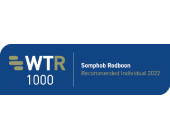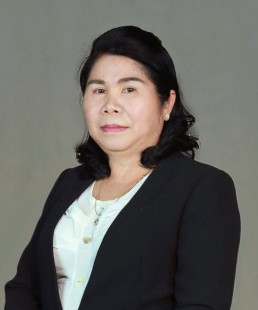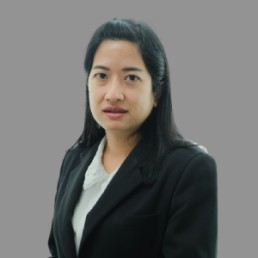According to Thailand’s National Statistical Office, the country officially entered the status of an “aged society” in 2024. This aligns with a global trend highlighted in a United Nations report, which underscores the increasing size and proportion of older individuals in populations worldwide.
As a prominent health and wellness hub, Thailand has experienced growing demand for health-focused services. To address this societal shift and tap into emerging opportunities, the government has introduced attractive incentives aimed at supporting the evolving needs of its aging population. These measures are designed to unlock potential in adapting to demographic changes while attracting investors to high-growth sectors such as senior and dependent care businesses.
The key details of these initiatives are outlined below:
1. Licenses
Senior and dependent care businesses, including day care centers, residential homes, and nursing homes, fall under the legal definition of the “Business of Caring for the Elderly or Dependent Persons” (collectively referred to as the “Business”). Operating such businesses requires a license, as stipulated by the Health Business Establishments Act B.E. 2559 (2016) and its amendments.
These businesses are further regulated under the Ministerial Regulation on the Specification of the Business of Caring for the Elderly or Dependent Persons as a Health Business Establishment B.E. 2563 (2020) (the “Ministerial Regulation”).
The Ministerial Regulation classifies this Business into three distinct categories, as outlined below:
| No. | Categories | Criterion |
|---|---|---|
| 1. | Day Care | : The business that provides day care services for the elderly or dependents, with activities to care for, promote and rehabilitate the health of the elderly or dependents without overnight stays. |
| 2. | Residential Home | : The business that provides services for the elderly, including activities to promote and rehabilitate the elderly by providing a place to stay. |
| 3. | Nursing Home | : The business that provides care and support of the elderly or dependents, including activities to care for, promote and rehabilitate the health of the elderly or dependent persons, with overnight stays. |
For each category, business owners must adhere to specific requirements, such as implementing enhanced safety measures for businesses offering overnight accommodations or residential services. Licensing costs also vary depending on the type of service provided and the size of the service area, which is calculated based on square meters.
To obtain the required license, applicants must submit an application form to the Health Service Support Center under the Department of Health Service Support, Ministry of Public Health.
2. Additional Requirements for Foreign Companies
Under Thailand’s Foreign Business Act B.E. 2542 (1999) (the “FBA”), a company incorporated under a foreign law or a company incorporated under Thai law with foreign shareholders holding 50% or more of the shares is classified as a foreign company.
The business of health care is categorized as a business under List 3 of the FBA, in which a foreign company must obtain authorization from the Foreign Business Administration Division, under the Department of Business Development (DBD), Ministry of Commerce (MOC).
3. Business Incentives
- 3.1 Specific criteria on the Senior and Dependent Business
The incentives by the Board of Investment (the “BOI”) are outlined in the Announcement of the BOI No.9/2565, setting the criteria for entities operate the senior or dependent care business, as detailed below:No. Criteria Details 1. Nationality Must have Thai national shareholders holding 51 percent or more of its registered capital. 2. Compliance Must be a business focused on caring for the elderly or dependent persons. 3. Capacity Must have 31 or more beds for overnight stays of admitted patient. 4. Activity Must provide care and support for senior/dependent persons by allowing overnight stays and offering rehabilitation activities* 5. License Must obtain license to operate a health business establishment before exercising the incentive, and before the full operation deadline. 6. Minimum Investment Must have minimum capital of investment not less than 1 million Baht (excluding costs of land and working capital) - 3.2 Benefits
The entities being granted BOI incentives under the criteria are entitled to enjoy the benefits granted as follows:
No. Categories Details 1. Corporate Income Tax An exemption on the Corporate Income Tax for 3 years. 2. Import Duties An exemption on the import of 1) machinery, 2) raw materials used in R&D, and 3) raw materials used in production for export. 3. Non-tax Incentives Such as permits for owning land, permits to bring skilled persons and experts to work, visa and work permit benefits, etc.
In conclusion, as one of the world’s aging societies and a renowned global health and wellness destination, Thailand has experienced a growing demand for health-focused and well-being services. To support this trend, the government, through the Board of Investment (BOI), offers attractive incentives, including corporate income tax exemptions, reductions in import duties, and various non-tax benefits, specifically targeting high-potential sectors such as senior and dependent care businesses.
While foreign companies face additional operational requirements and are currently ineligible for BOI incentives due to structural restrictions, they still have opportunities to enter this promising sector. Operators must also comply with a range of licensing and legal obligations, including obtaining health business licenses and adhering to stringent safety and waste management regulations.
Despite these challenges, the senior and dependent care business sector presents significant investment potential in Thailand, underpinned by the country’s demographic trends and strong health and wellness reputation.
For businesses in the senior and dependent care sector, ILAWASIA provides expert legal advice and comprehensive regulatory support to ensure compliance and help clients capitalize on emerging opportunities in this dynamic industry. Let us be your trusted partner in navigating the evolving legal landscape and driving the success of your business.
Author:
Tanadee Pantumkomon, Partner;
Thanaphorn Kaewsukko, Associate; &
Kornkod Suk-aram, Associate.



















































